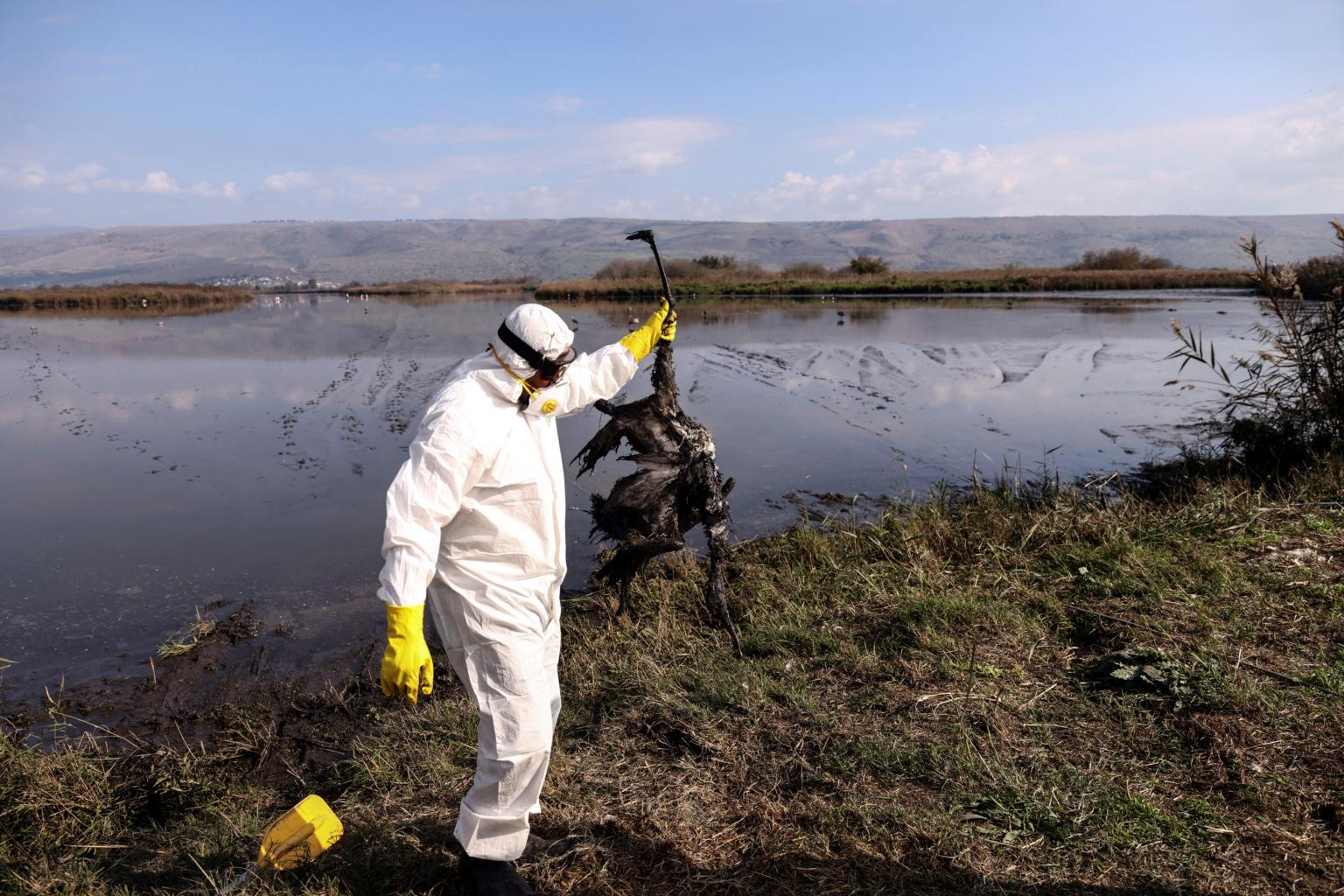Wave of bird flu in Asia, Europe has greater risk of spreading to humans: Official
Sign up now: Get ST's newsletters delivered to your inbox

A worker of the Ministry of Agriculture and Rural Development holds up a dead crane following an outbreak of avian flu in Hula Valley, northern Israel, on Jan 2, 2022.
PHOTO: REUTERS
Follow topic:
PARIS (REUTERS) - A wave of bird flu in Asia and Europe has a greater risk of spreading to humans because of a high number of variants, the World Organisation for Animal Health (OIE) said.
The spread of highly pathogenic avian influenza, commonly called bird flu, has raised concern among governments and the poultry industry after previous outbreaks led to the culling of tens of millions of birds and trade restrictions.
"This time the situation is more difficult and more risky because we see more variants emerge, which make them harder to follow," OIE Director General Monique Eloit told Reuters in an interview on Wednesday (Jan 5).
"Eventually the risk is that it mutates or that it mixes with a human flu virus that can be transmitted between humans then suddenly it takes on a new dimension," she added.
Fifteen countries had reported outbreaks of bird flu in poultry between October and the end of December, mostly the H5N1 strain. Italy was the worst hit in Europe with 285 outbreaks and nearly four million birds culled, OIE data showed.
Outbreaks generally start in the autumn, when the infection is spread by migrating wild birds.
H5N1 is one of the few bird flu strains that has passed to humans. In total around 850 people have been reported to be infected with the strain, of which half died, the OIE said.
Last year several people were infected by the H5N6 strain in China, raising concern among some experts, who say a previously circulating strain appears to have changed and may be more infectious to people.
Dr Eloit stressed, however, that most countries had learned to contain outbreaks and transmissions to humans would be sporadic as bird flu is usually passed through close contact.
"If there are one, two or three humans infected it is worrying but it is not necessary to cry wolf too quickly about the risks of extension. It will depend on how the people have been infected," she said.

